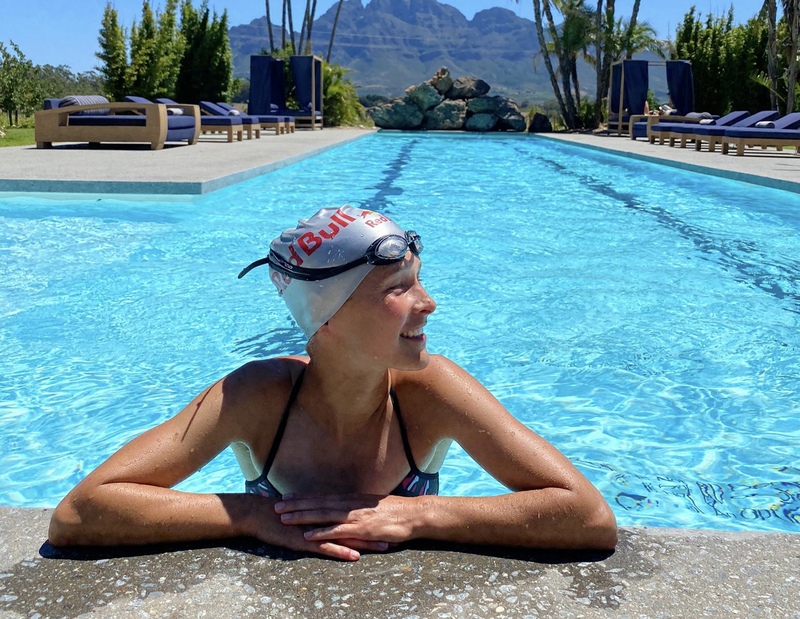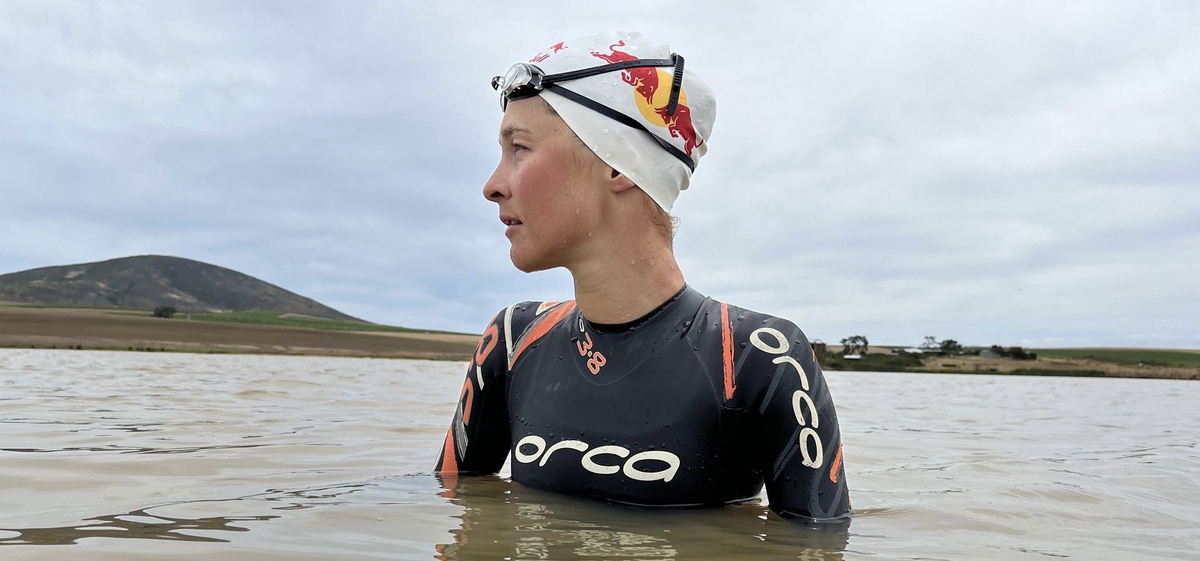Swimming blog - TRIATHLON 10 BURNING QUESTIONS: OLYMPIC TRIATHLETE RACHEL KLAMER
Dutch triathlete Rachel Klamer has been internationally succesful for more than a decade. She has participated in three Olympic Games, ranking an astonishing fourth place at the Tokyo Games in 2021 and now she is preparing her fourth (!) Olympic performance in Paris. At 17 years old she tried her very first triathlon and the rest is history. Read and learn more about this amazing athlete!
How did you become interested in triathlon and what do you like so much about the sport?
I started swimming when I was young. Not so much because I liked it, but because my best friend wanted to swim. When I learned how to swim I actually hated it. I can’t remember why. I ended up enjoying it anyway and only swam until I was about 17. Every now and then my parents would participate in a local running race and I joined the kids races whenever possible. When I got a bit older we realized I was a better runner than I was a swimmer.
I joined an athletics club where someone told me about a ‘triathlon talent day’ where I would have to swim an 800 and run a 3000 meters. As a ‘newbe’ I surprised the scouts and got offered to be in a team. They supported me in lots of ways: from coaching to material. I could not have had a better start as a triathlete. I also didn’t want to quit swimming and only run, so this sport looked perfect! The best thing about triathlon is that I get to spend a lot of time outdoors. Being outdoors would be something I would really miss if I only swam. I get to travel, meet lots of people and get to travel to awesome places.
What do you remember of your very first triathlon experience and was it enjoyable?
My very first triathlon was in France, Forbach. Not long before the European championships (juniors) in Lisbon in 2008. The race was chaos. We swam in a pool with a couple of athletes per lane. People where not rotating, but fighting each other every single lane. Imagine the tumble turns! I don’t remember if I swam well, that swim was a bit of a shock. As I was still new to the sport, I had put my cycling shoes next to my bike as I wasn’t capable yet of jumping on my bike. When I got onto my bike, I almost crashed into a spectator. On the run I got side stitches, something which I still struggle with at the start of each season.
I can’t say it was enjoyable, but maybe that was mostly because I learned so many new things and there was a big race coming up. Not long after (I guess about two weeks) I swam open water for the first time during the European Championships. I got a wetsuit and had to swim in a lake where I saw the fish jump in front of me. I swam a couple of strokes in breaststroke, this open water swimming was scary! Some athletes crashed on the bike and I wondered if I had to wait for them. Side stitches followed on the run and I finished mid field. Lots of impressions, but the start of my triathlon career had just happened.

Rachel started out as a competetive swimmer.
What is your favourite discipline and what is your least favourite?
My favourite discipline has changed in the past couple of years. Where I used to prefer swimming when I started doing triathlon, I now choose running as my favourite. The discipline which feels the easiest is often someone’s favourite. I love running because it’s simple. You don’t need much and you can run pretty much anywhere in the world. It’s also a nice way to explore new places.
As a professional athlete, what is your best and worse habit?
My best habit is probably also my ‘worst’. Perseverance. You won’t often see me giving up, unless I’m really not capable of doing it. I always say that once you give up, it makes it easier to give up the next time as well. The tricky thing is that sometimes it is actually wise to give up. Sometimes you need to listen to your body and mind and realize that enough is enough.
What do you like the best about your freestyle swimming stroke and where can you make the biggest improvement.
The best thing is that it’s the fastest stroke 😉. In training I actually enjoy mixing up the strokes and not only swim freestyle: it’s fun, good for coordination and injury prevention. To say where I can improve the most is difficult. Although I absolutely believe in technique training, I’m not sure if changing my technique will help me a lot as I’m not the youngest athlete anymore. I think working on my speed for the first 400 meters of the swim will help me the most. We all start quite hard, but settling into that pace to maintain your position isn’t easy.
"Don't get fixated on numbers, learn to listen to your body".
What is the hardest training set you’ve ever done?
I actually don’t know. Any session where you have to go (close to) all out is hard! It could have been something like a 15 x 100 meters as hard as possible on average without slowing down at the end.
Do you have the itch to go into longer distance like 70.3 and full distance?
The last time (and only time) I raced a half distance was in 2017 and I quite enjoyed it, but currently I have no plans on racing a full distance. For now I stick to the shorter distances. Time will tell.
At SwimGym we value dryland training to promote strength, range of motion and injury prevention. What is your dryland routine and what have you found to be the most effective exercises?
At home we build a small gym with Fitness Occasions, it has all I need. As I travel a lot, I want to be flexible with my dryland training as I don’t always have a gym available. A big part of my dryland training consists of core stability and stretching. Now I get older, I feel like I need to look after my body more than before. If you’re looking for exercises you can do anywhere, think of one legged squads, push-ups, sit-ups and exercises with elastic bands for resistance. Core stability will help you in all disciplines.
Klamer trains with husband and fellow Olympian Richard Murray.
What is your most valuable piece of training equipment in the pool?
When I travel and I don’t have much space left in my suitcase I only bring my paddles and pull buoy. You can always use your pull buoy as a kicking board, it just makes kicking a bit harder.
Triathlon is becoming very popular as a sport, what 3 tips would you give our readers who are training for a triathlon?
1. Enjoy what you are doing. It sounds cheesy, but it’s much easier to do your training when you enjoy it. Train at nice places, do workouts you enjoy.
2. Find yourself some training partners. It can make training easier! I personally like to do some training sessions by myself, but it’s nice to alternate this with some group sessions, especially when it comes to swimming.
3. Don’t get fixated on numbers. Learn to listen to your body. Often we tend to think more is better, but it’s not always like this. Everyone is different. Some athletes train a lot, others don’t. Some train very hard, others benefit more of low intensity training. Take the time to figure out what’s the best for you!
Thank you for taking the time to answer our questions, Rachel! We wish you all the best in your career and personal life!
